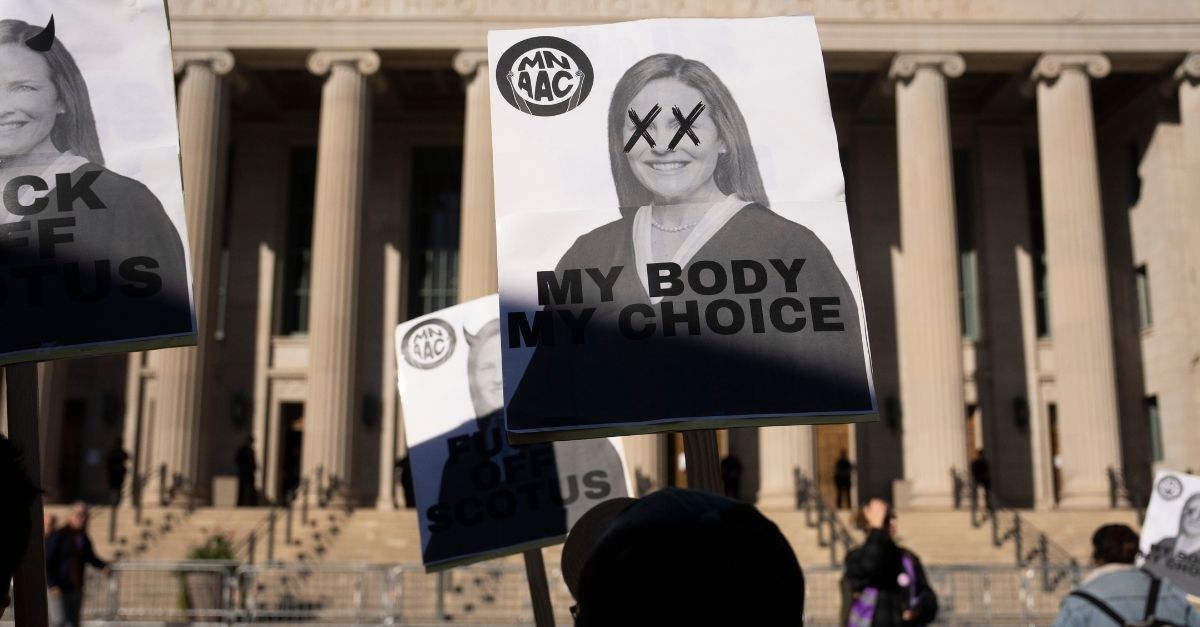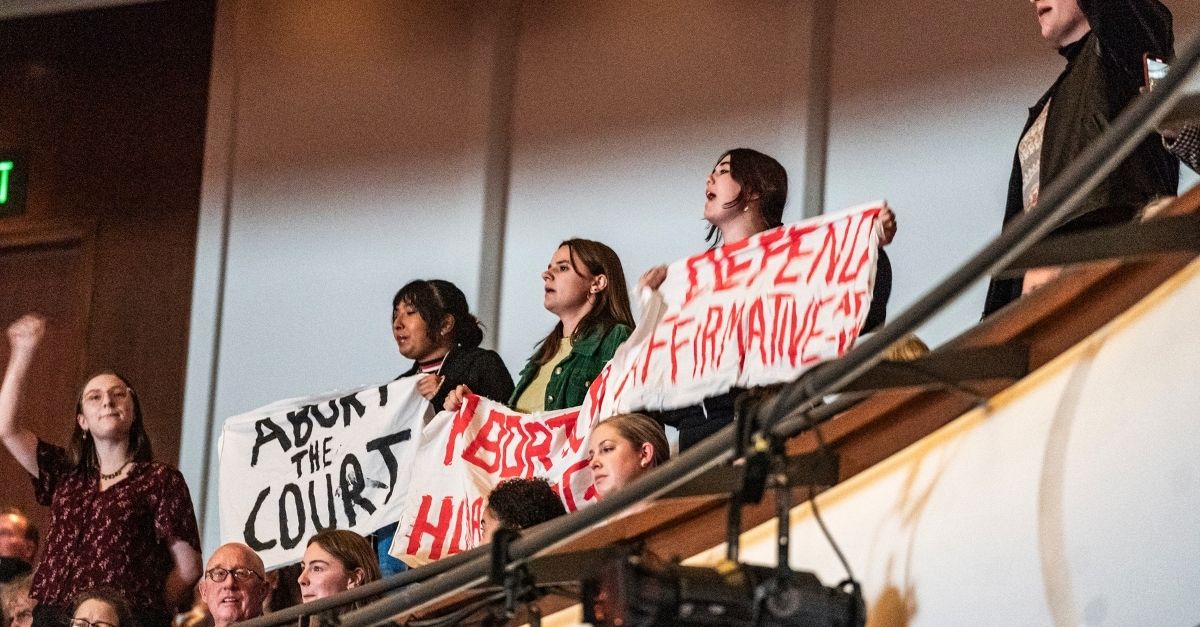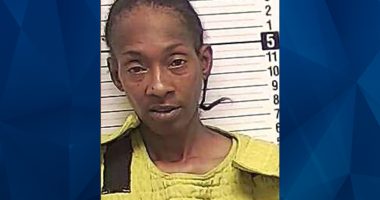
Demonstrators hold signs denouncing Supreme Court Justice Amy Coney Barrett while protesting a speech by Barrett outside Northrup Auditorium the University of Minnesota, Monday, Oct. 16, 2023, in Minneapolis. (Renee Jones Schneider/Star Tribune via AP)
Supreme Court Justice Amy Coney Barrett spoke to a sold-out crowd of over 2,600 people Monday at the University of Minnesota Law School. The event, which was a conversation between the justice and law school dean and former chief operating officer of the American Bar Association Robert Stein, also drew over 200 protesters.
During the one-hour event, Stein questioned Barrett about a variety of matters including her personal experience as a Supreme Court justice, her “originalist” philosophy of Constitutional interpretation, and her take on whether the Court should adopt an ethics code.
A particularly noteworthy aspect of the onstage discussion centered around Barrett’s take on being one of the six women ever to serve on the Supreme Court.
When Stein asked Barrett whether she and the other three women on the high court socialize, Barrett laughingly described their relationship as “delightful,” then added an interesting take on her gender.
“I don’t think that my perspective — or that anybody’s perspective — is different just by virtue of being a woman,” she said.
After making the comment, Barrett seemed not to notice the discrepancy between her remarks and the anecdotes with which she followed it.
Stein commented that Barrett, a mother of seven, was the first mother of young children to serve on the Court. Barrett responded that her struggles likely mirrored those of “most working mothers.” The justice referenced missed lunches with the other justices due to childcare conflicts.
Barrett also shared the story of listening to the 2000 hit song “Who Let the Dogs Out” with her 11-year-old son one morning, then shortly later, walking past the portraits of “these dignified men” who served as past justices as she recalled the tune.
She also described the contrast between her personal and professional life as sometimes “surreal,” but did not acknowledge any connection between that experience and any “different” perspective of women.

Protesters interrupt the session as U.S. Supreme Court Justice Amy Coney Barrett speaks with Professor Robert A. Stein at Northrop Auditorium as part of the Stein Lecture Series in Minneapolis, Monday, Oct. 16, 2023. (Richard Tsong-Taatarii/Star Tribune via AP)
Shortly after Barrett began speaking, a number of women demonstrators seated in the balcony interrupted by unfurling banners referencing Supreme Court rulings onto which Barrett signed. One banner read, “Abort the Court,” referencing the Court’s 2022 landmark ruling to overturn Roe v. Wade.
Read Related Also: Big Apple exodus! More than 500,000 New Yorkers fled the state last year for Florida, California and neighboring states, new census data shows
Protesters also yelled, “Reproductive rights are under attack! What do we do? Stand up, fight back!”
They were escorted out of the auditorium by police.
Though Barrett sided with the Court’s 6-3 conservative majority in the Dobbs decision, Justices Sonia Sotomayor and Elena Kagan, the Court’s other two women justices (the decision pre-dated Justice Ketanji Brown Jackson’s time on the Court), stood in stark opposition.
The dissenting justices wrote about the impact Dobbs would have on women generally:
The abortion right is also embedded in the lives of women — shaping their expectations, influencing their choices about relationships and work, supporting (as all reproductive rights do) their social and economic equality.
During her talk at the law school, Barrett shared a number of anecdotes about how the women justices have supported one another as they began their respective times on the Court. She mentioned Sotomayor’s kindness in making Halloween candy bags for Barrett’s children soon after Barrett was confirmed to the Court in October 2020.
Barrett also described her efforts in arranging a welcome party for Jackson when she joined the Court shortly after the Dobbs ruling in 2022. Barrett said she discovered that Jackson was a fan of the musical “Hamilton” and hired a Broadway actor to serenade her.
The justice also spoke about the possibility of the Supreme Court adopting an ethics code Monday. Barrett said she supported the idea and that, “It would be a good idea for us to do it, particularly so that we can communicate to the public exactly what it is that we are doing in a clearer way.”
Barrett added that she was not alone in favoring an ethics code, and said, “all nine justices are very committed to the highest standards of ethical conduct.” However, she provided no specific information on the specifics on what kind of code would be appropriate.
Barrett’s comments did not address what some Democrats have called the Court’s “self-inflicted ethics crisis,” nor did it mention the response to the Senate Judiciary Committee’s proposal to impose ethics standards on the Court, denounced last July by Senate Republicans as “dead as fried chicken on the Senate floor.
Public demands for ethics reform at the Supreme Court level have steadily grown after Justice Clarence Thomas’ undisclosed dealings with billionaire Harlan Crow were made public.
Have a tip we should know? [email protected]








